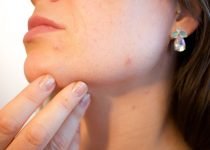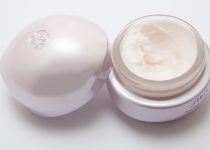Discover How to Cure Acne: The Benefits of a Skin Hydration Routine
Discover How to Cure Acne: The Benefits of a Skin Hydration Routine
Acne can be a persistent and often frustrating skin condition that affects millions of people worldwide. While there are numerous treatments available, many overlook the importance of maintaining a proper skin hydration routine. This blog post will explore how keeping your skin hydrated can help in curing acne and why it should be an integral part of your skincare strategy.
Understanding Acne: Causes and Types
Before diving into the benefits of a skin hydration routine, it is essential to understand what acne is and the factors that contribute to it. Acne is a skin condition that occurs when hair follicles become clogged with oil and dead skin cells. It can manifest as blackheads, whiteheads, pimples, cysts, or nodules.
Common Causes of Acne
Acne can be triggered by various factors, including:
- Hormonal Changes: Fluctuations in hormones, especially during puberty, can lead to increased oil production, resulting in acne.
- Diet: Some studies suggest that diets high in refined sugars and dairy can exacerbate acne.
- Stress: Stress can increase the production of sebum, leading to clogged pores.
- Genetics: If your parents had acne, you might be more likely to develop it.
Types of Acne
Acne can appear in different forms:
- Comedonal Acne: Characterized by blackheads and whiteheads.
- Inflammatory Acne: Includes papules and pustules, which are red and swollen.
- Cystic Acne: A severe form of acne that leads to deep, painful cysts and nodules.
The Importance of Skin Hydration
Hydration is a critical component of healthy skin. Proper hydration helps maintain the skin’s natural barrier, which protects against harmful external factors and prevents moisture loss. Adequate skin hydration can also reduce the appearance of fine lines and wrinkles, making it an essential part of any skincare routine.
How Hydration Helps in Acne Treatment
When it comes to acne treatment, hydration plays a crucial role in several ways:
- Balances Oil Production: When the skin is dehydrated, it may produce more oil to compensate, leading to clogged pores and acne. Keeping the skin hydrated helps regulate oil production.
- Reduces Inflammation: Hydrated skin is less prone to inflammation, which can reduce the severity and frequency of acne breakouts.
- Improves Skin Barrier Function: A well-hydrated skin barrier is better equipped to fend off bacteria and pollutants that can cause acne.
Building an Effective Skin Hydration Routine
Creating a skin hydration routine that complements your acne treatment plan is vital. Here are some actionable tips to help you get started:
Choose the Right Moisturizer
Not all moisturizers are created equal. When selecting a moisturizer for acne-prone skin, look for products that are:
- Non-comedogenic: These products are formulated to not clog pores.
- Oil-free: Opt for oil-free moisturizers to prevent excess oil production.
- Lightweight: A lightweight formula can provide hydration without making the skin feel greasy.
Incorporate Hydrating Ingredients
Some ingredients are particularly effective at hydrating the skin, such as:
- Hyaluronic Acid: Known for its ability to hold 1000 times its weight in water, making it an excellent hydrator.
- Glycerin: A humectant that draws moisture from the air into the skin.
- Aloe Vera: Known for its soothing and hydrating properties.
Stay Hydrated from the Inside Out
Drinking plenty of water is essential for maintaining hydrated skin. Aim for at least 8 cups of water a day to help keep your skin and body hydrated.
Use a Humidifier
If you live in a dry climate, consider using a humidifier to add moisture to the air, which can help keep your skin hydrated and reduce the likelihood of acne breakouts.
Relevant Statistics and Studies
Research supports the importance of hydration in acne prevention and treatment. According to a study published in the Journal of Clinical and Aesthetic Dermatology, patients with acne who followed a skincare regimen that included appropriate moisturization experienced a significant reduction in acne severity.
Furthermore, a survey conducted by the American Academy of Dermatology found that 85% of people with acne reported improvements in their skin’s overall appearance when they incorporated a daily hydration routine.
Conclusion: Embrace Hydration for Clearer Skin
In conclusion, while acne can be a challenging condition to manage, adopting a skin hydration routine can significantly improve your skin’s health and appearance. By balancing oil production, reducing inflammation, and strengthening the skin barrier, proper hydration can be a game-changer in your battle against acne. Remember to choose the right products, incorporate hydrating ingredients, and maintain good hydration habits both internally and externally. Embrace the power of hydration and enjoy the journey to clearer, healthier skin.


